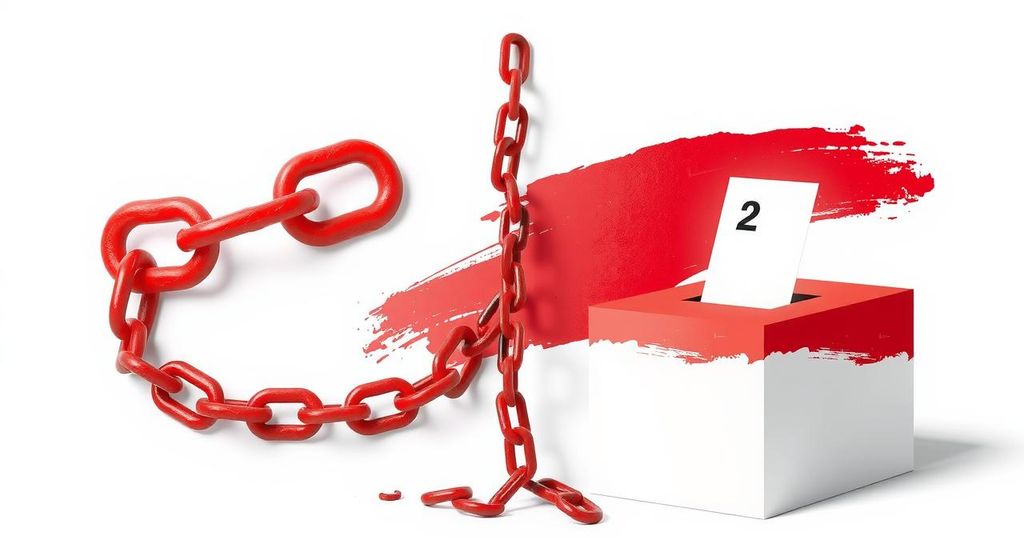The Democratic Party of Kenya, led by CS Justin Muturi, has issued a 30-day exit notice from the Kenya Kwanza alliance, citing untenable political conditions. This decision follows Muturi’s criticisms regarding government policies and his personal experience with his son’s abduction. The withdrawal highlights potential political ramifications as the country approaches the 2027 elections, while Muturi remains steadfast amidst backlash from political allies.
The Democratic Party of Kenya (DPK), under the leadership of Public Service Cabinet Secretary Justin Muturi, has announced its decision to exit the Kenya Kwanza alliance. The party issued a formal 30-day notice on March 7, 2025, citing political developments that have rendered its remaining in the coalition untenable. Chairman Esau Kioni and Secretary General Jacob Haji facilitated the announcement, officially communicating it to the Kenya Kwanza Coalition Secretariat.
In their correspondence, the DPK invoked Clause 8 of the coalition agreement, which permits such an exit under specific circumstances. This clause allows the party to effectively dissociate itself within a 30-day period following the notification. The official letter has also been shared with the Registrar of Political Parties and relevant party officials within the coalition affiliates, maintaining transparency about their withdrawal.
The decision to withdraw is positioned against the backdrop of Muturi’s vocal criticisms of the current government, particularly regarding issues of enforced disappearances. His personal experience—having dealt with the abduction of his son, Leslie Muturi, in June 2024—has intensified his scrutiny of governance and law enforcement. Muturi stated, “I have personally suffered as my son was abducted, leaving my family in turmoil.”
The case remains under investigation by the Directorate of Criminal Investigations (DCI), while the National Police Service has distanced itself from such allegations of abduction. Some allies of President William Ruto have reproached Muturi’s approach, characterizing his remarks as politically charged, with aspirations towards the 2027 elections influencing his perspective.
Critics within the ruling UDA party labeled Muturi’s actions as misguided and advised him to address such concerns within the confines of cabinet meetings, reiterating that his loyalty to the government should preclude public criticism. Nevertheless, Muturi has expressed his determination to maintain his stance, unaffected by potential repercussions, stating, “I do not fear being sacked. I trust in God.”
The Democratic Party of Kenya’s withdrawal from the Kenya Kwanza alliance marks a significant political shift. With Justin Muturi at the forefront, this decision aligns with the party’s concerns over governance and enforced disappearances, particularly following the troubling personal experience of Muturi regarding his son’s abduction. The subsequent criticism from both government supporters and Muturi’s resolve to remain vocal about these issues underscores the complex dynamics within Kenyan politics as the nation approaches upcoming electoral challenges. Ultimately, this development reflects ongoing tensions and calls for accountability within the current administration.
Original Source: eastleighvoice.co.ke




